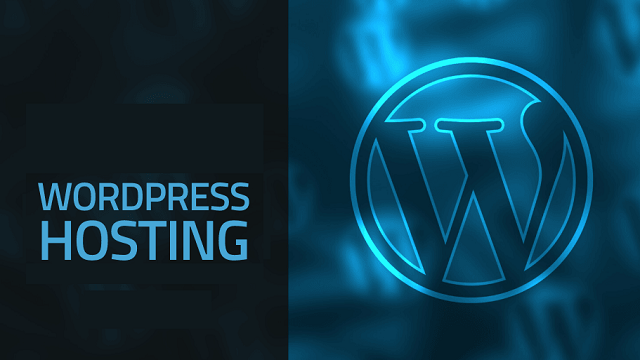Editors' Choice
How to manage your WordPress hosting like a pro
- Get link
- X
- Other Apps
How to manage your WordPress hosting like a pro
WordPress is a popular content management system (CMS) that allows you to easily create and manage your own site.
Even though WordPress is a great platform, it's important to choose the right WordPress hosting provider to ensure that your website runs smoothly and efficiently. In this blog post, we will explain how to choose and manage your WordPress hosting like a pro.
What is WordPress hosting?
Types of WordPress hosting
WordPress hosting is a type of web hosting that is specifically designed for hosting WordPress websites. There are different types of WordPress hosting, each with its benefits. The most common types of WordPress hosting are shared hosting, managed-to-host, and VPS (Virtual Private Server) hosting.
Shared WordPress hosting: shared WordPress hosting is the most popular type of WordPress hosting. It is ideal for small businesses and individual bloggers who have a limited budget. Shared WordPress hosting plans usually start at around $5 per month. The main advantage of shared WordPress hosting is that it is very affordable. However, the downside is that you have to share resources with other websites on the same server, which can lead to slower speeds and downtime during peak hours.
Managed WordPress hosting: Managed WordPress hosting is more expensive than shared WordPress hosting, but it offers several eras that are worth the extra cost. Managed WordPress hosts take care of all the technical aspects of running your website for you, including security, speed, updates, and backups. This gives you more time to focus on creating content and promoting your site. Rates usually start at around $25 per month.
VPS hosting (Virtual Private Server): VPS hosting is a type of web hosting where you get your dual private server. This means that you have your sourcescesavailable for your website and do not have to share them with other websites on the same server. VPS plans usually start at around $50 per month, but can increase depending on your need. The main advantage of VPS over shared or managed WordPress hosting is that it offers more flexibility and control over your website. However, it also requires a higher level of technical expertise to manage it effectively.
How to choose a WordPress hosting provider.
Consider your needs
Before you start looking for a WordPress hosting provider, you should first determine your specific needs. Ask yourself the following questions:
- How much traffic can you expect on your site?
- Do you need a host that can scale with you as your traffic grows?
- What kind of features do you need from your hoster?
Do you need email hosting?
Do you need eCommerce features?
Answering these questions will help you narrow down your options and choose a provider that best meets your specific needs.
Compare prices
One of the most important factors when choosing a WordPress hosting provider is price. Fortunately, several providers offer competitive pricing.
Read reviews
Another important factor is what other people have to say about the provider. Be sure to read reviews from customers and experts before making a decision. This will give you a good idea of what to expect from the provider in terms of customer service, features, and overall value.
Check the reputation of the company
Finally, you should also check out the reputation of the company before you decide to use their services. Look for awards that the company has received, positive press reviews, and other signs that it is a reputable company. This way, you can be sure that you are getting quality service from a company that cares about its customers.
How to manage your WordPress hosting.
Secure your website
Your WordPress website should be backed up regularly to avoid data loss in case of server problems or hacker attacks. Many plugins and services will help you automate this process.
Update WordPress and plugins
Keeping WordPress and your plugins up to date is important for security and stability. You can usually do this automatically through your hosting control panel or with a plugin like WP Automate Updates.
Secure your website
There are some simple measures you can take to protect your WordPress website, such as using a strong password and choosing a reputable hosting provider with good security measures. You can also install a security plugin to protect your website from malicious attacks.
Monitor the uptime of your website
Monitoring your website's uptime is important to ensure that your visitors can always access your content. Many free and paid tools will notify you when your website is down, so you can act quickly to fix the problem.
If you want to manage your WordPress hosting like a pro, you need to do a few things. First, you need to choose a WordPress hosting provider that suits your needs and budget.
Second, you need to back up your website regularly. Third, you need to update WordPress and plugins as needed. Fourth, you need to protect your website against hackers.
And finally, you need to monitor the uptime of your website. If you follow these simple steps, you can be sure that your WordPress website will run smoothly and efficiently.
- Get link
- X
- Other Apps




Comments
Post a Comment